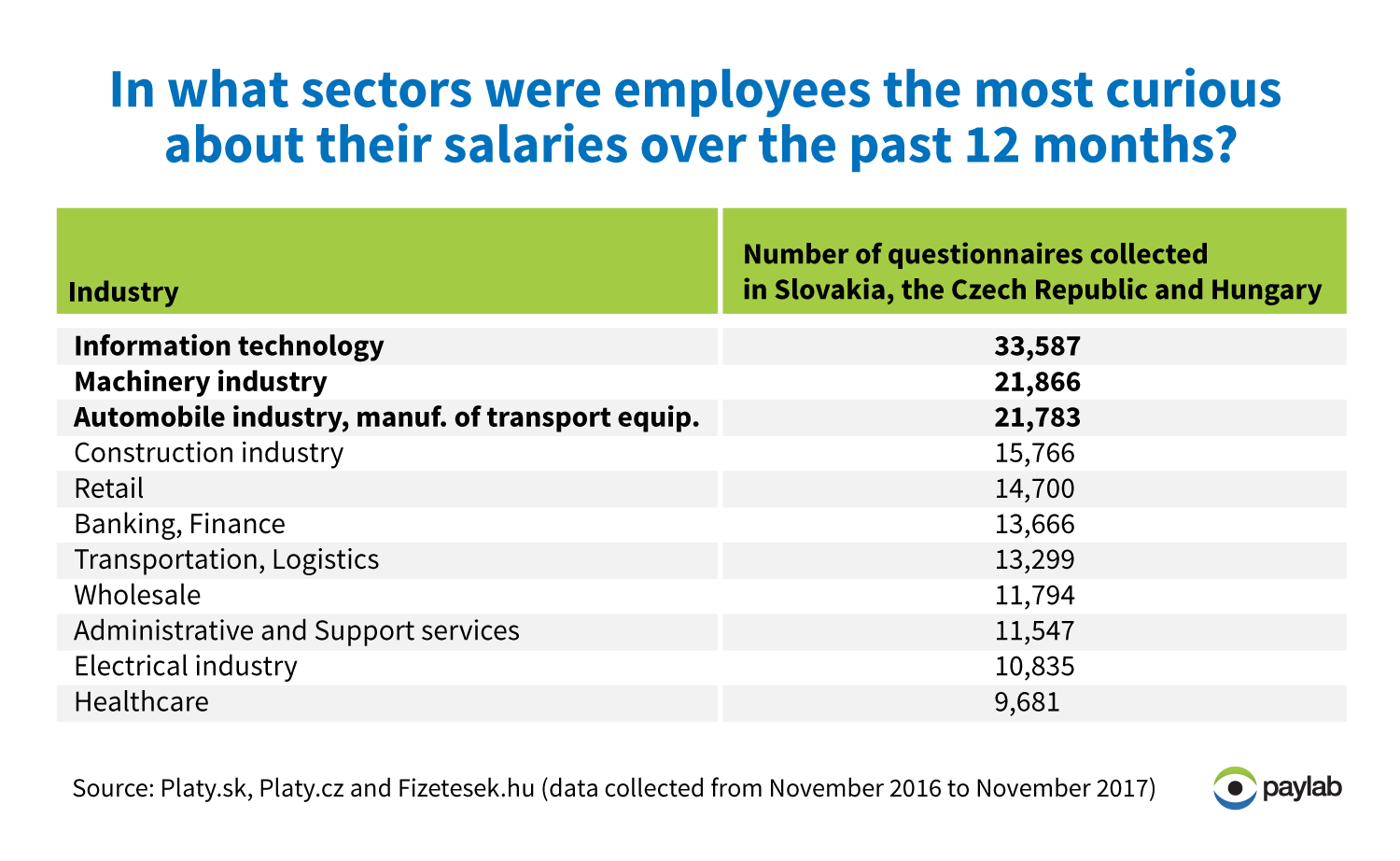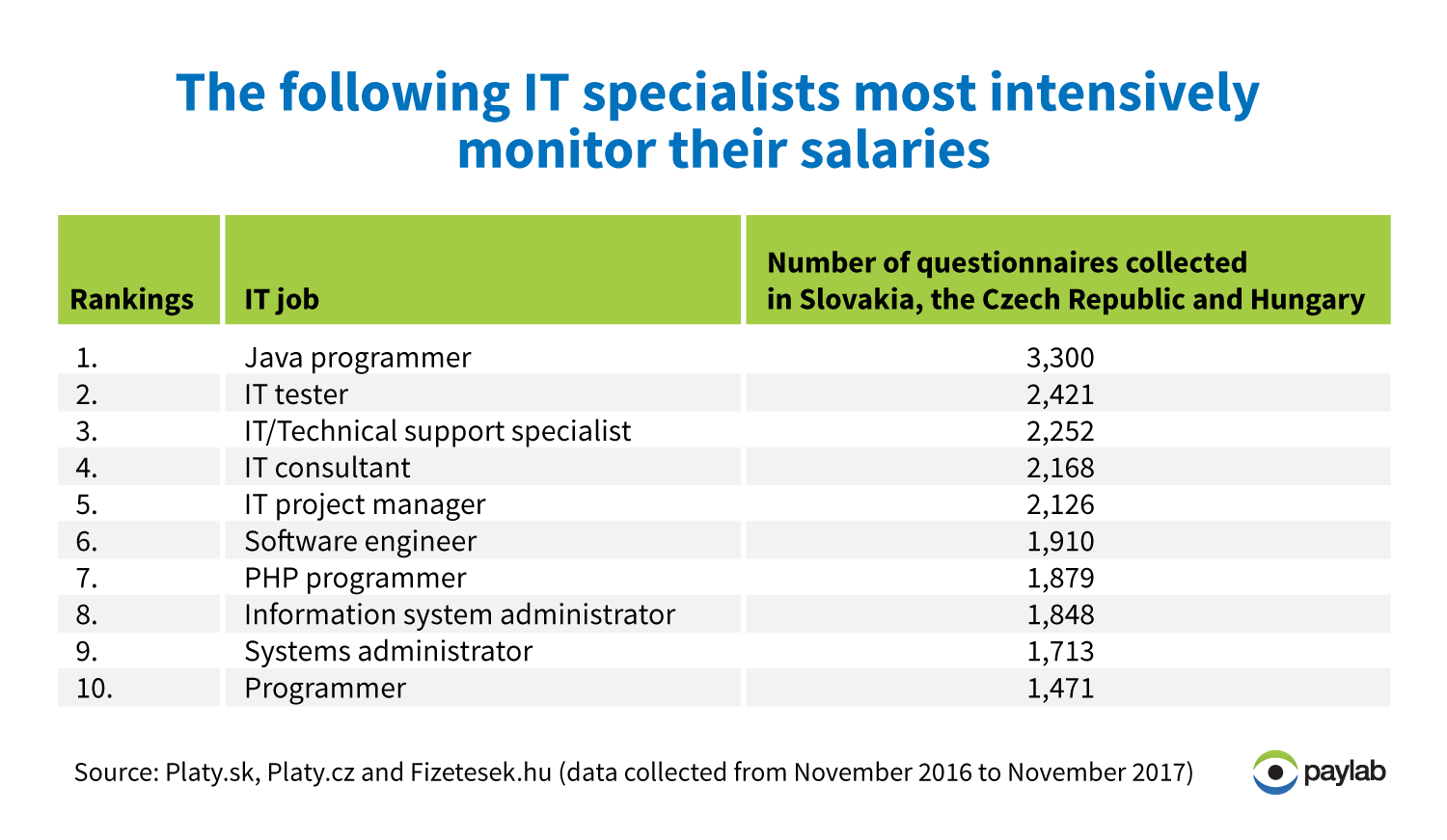IT employees monitor their salaries the most intensively in Central Europe
Information technology employees monitor their salaries the most intensively. A total of 33,587 IT employees in Slovakia, the Czech Republic and Hungary compared their salaries using an anonymous online service over the past 12 months, the most salary questionnaires among all industries. Analysis was conducted using the three largest salary portals, Platy.sk, Platy.cz and Fizetesek.hu, which all use identical data collection methodology. All three portals are celebrating their 10th anniversaries this year and are among the largest information databases on salaries and benefits in the Central Europe region.
All 3 portals have collected more than 3.1 million salary questionnaires since 2007.
Information technology is one of the best paying sectors with pay developing at much more dynamic rates compared to other industries. Other sectors in which employees expressed their curiosity as to market salary changes include mechanical engineering and the auto industry.


Other sectors in which employees expressed their curiosity as to changes in the pay market include mechanical engineering and the auto industry. Salary portals collected more than 21,700 salary questionnaires in both sectors. The specific positions of designer, mechanical engineer, CNC tool set-up technicians and CNC programmers were the top pay-related searches in the mechanical engineering sector. The most searched jobs in the auto industry included: process engineer, quality controller, technologist and maintenance engineer.
The top ten industries in which people most intensively monitor their market value are the construction industry, retail and wholesale, banking and finance, transportation and logistics, administrative and support services, the electronics industry and healthcare.
Lack of salary information
A lack of salary information among employees and job seekers is one of the main reasons why people search for salary information themselves using salary portals. A contributing factor is the fact that most employers do not disclose salaries in job adverts.
There is currently a draft amendment to an act working its way through the Slovak parliament that would oblige employers to disclose a gross base salary in job adverts. This act assumes that an employer cannot give an employee any less than the advertised salary. Job seekers still only have part of the picture when it comes to a company's remuneration policy, especially if the company publishes a salary range instead of a specific figure.
Independent information on a job's current value on the labour market and the ability to compare pay information for the same position with other employees give candidates a better overall picture of remuneration and the opportunity to better negotiate their own salary. Thanks to the portal, candidates have access to information on the total compensation package for a specific position, including variable salary components and bonuses, while the portal also compares non-financial benefits.
Companies use Paylab salary data to:
- Properly configure employee remuneration
- Creating new reward system
- Benchmark salaries with the current market and the competition
- Maintain the attractiveness and competitiveness of the work conditions offered to top talents

dm-drogerie markt Named Croatia's Most Desirable Employer for the Fifteenth Consecutive Year

What HR Marketing Can Do and How to Approach It

The new EU Artificial Intelligence Regulation will have a significant impact on employers and HR as early as 2025







